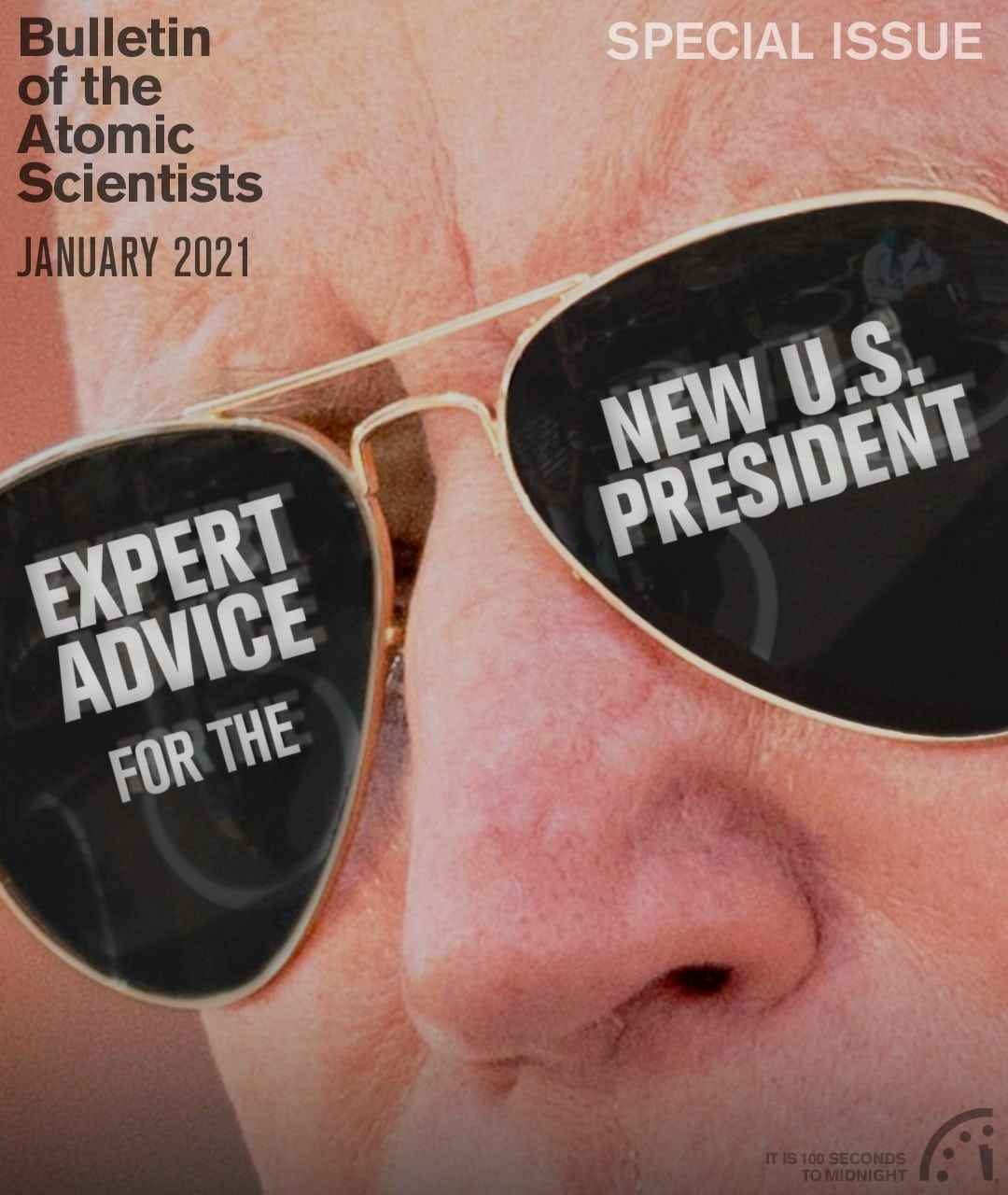To build climate progress on time scales that matter, Biden should be Biden
By Andrew Revkin | January 12, 2021
To build climate progress on time scales that matter, Biden should be Biden
By Andrew Revkin | January 12, 2021
As he prepares to run what he calls a “presidency for all Americans,” President-Elect Joe Biden has had no shortage of advice on how to address the climate crisis, which he made a top-four issue in his campaign.
Biden’s Build Back Better transition plan already integrates the “whole of government” approach laid out by 150 former senior officials in the Climate 21 Project. This is essential, given how energy, public health, disaster management, and other critical facets of the climate challenge cross all boundaries. His team has also clearly drawn on the jobs-and-equity-focused components in a plan co-written by the youth-driven Sunrise Movement (a force behind the 2018 Green New Deal) and Justice Democrats (an organization building a progressive caucus in Congress).
He’ll hopefully see the merit in the compelling case that his science adviser should have a seat at the cabinet table so that emerging risks of any kind, from climate change to pandemics and beyond, are assessed not just with the best data but with effective working relationships.
The urgent task for Biden now is prioritizing and navigating among competing constituencies—and amidst America’s divided politics—with sustained climate progress in mind.
First, he’ll need to withstand the seductive pull of the “First 100 Days” metric that the media and political pundits inevitably call for in new leaders. There are plenty of issues to populate such a list, of course, particularly the need to swiftly sign a heap of executive orders to undo climate-related orders during the Trump years and return the United States to the Paris Agreement on climate change. The latter is a voluntary but vital set of guardrails offering countries a way to prod each other toward better performance when it comes to boosting resilience and clean energy sources. (And one often-overlooked benefit of the Paris Agreement is that it encourages funds to flow from countries that prospered on fossil fuels for generations to those least responsible for warming.)
But history shows that if the new president attempts too much too quickly—“overreach” is the political term of art—then Democrats can lose Congress and any chance at further progress, as happened during the “Gingrich Revolution” in 1994 and in the pushback from Republicans two years after President Barack Obama was inaugurated. And let’s not forget that the big elements of the Biden climate plan will all require legislation, not executive orders.
In fact, you could argue that an overarching imperative for climate policy is for Biden to focus less on his first 100 days and more on increasing the odds that he and Vice President-Elect Kamala Harris will have the full 96 months of a two-term span in the White House to make real, substantive, long-term change.
Biden should thus be Biden, as he pledged in the final debate. The path forward requires negotiation, uncomfortable compromise, and open lines of communication to the small but possibly pivotal array of Republicans in Congress and elsewhere who have made climate change a focus. Similarly, moving forward requires help from key industries—which alone, arguably, have the capacity to take on climate-scale projects.
There are reasons for optimism. Despite President Trump’s best rhetorical and executive efforts, states both red and blue have continued trending toward lower-carbon energy sources for electricity—including many states that were in court fighting President Barack Obama’s Clean Power Plan. While Iowans chose Trump for a second time at the ballot box, the state has also resoundingly chosen wind power in place of coal for its grid. A New York Times story on that change also noted that market forces will continue to erode coal’s portion of the American energy menu.
Consequently, the energy and emissions side of the nation’s climate journey is clear. Biden needs to couple the market’s momentum for non-polluting energy, industry, agriculture, and transportation with government standards for emissions—and enable all of this with boosted innovation. A tripled research and development budget through 2025 could help end the bipartisan slumber party on energy research that I first wrote about in 2006. Biden can then take that performance to the international arena to drive wider change.
None of this will be easy. There have long been tensions within the climate, environmental, and justice communities around what a climate-safe energy system should look like. Can Biden do what Governor Andrew M. Cuomo of New York did on nuclear policy—sustaining, even subsidizing, nuclear plants where they fit the state’s economic and political landscape while closing the Indian Point complex closest to New York City?
This is where the skills in negotiation and compromise that Biden stressed in his campaign will be more needed than ever.
But that’s just half the battle, and opportunity. The climate crisis is too often seen as just about global warming. There’s also a vulnerability crisis.
Worldwide, most of the growth in devastating losses, from wildfire zones to coastal and inland flood zones, is still the result of a decades-long surge in settlement and investment in areas already prone to such hazards—not yet in changes linked to global warming.
That leads to the urgent need for real-time investments and policies that reverse the “expanding bull’s eye” of built vulnerability that the geographers Walker Ashley and Stephen Strader have been mapping, from West Coast wildfire zones to Gulf and Atlantic coastlines and inland floodplains.
In cutting climate vulnerability, there are enormous opportunities to create the millions of jobs needed so badly in the pandemic-disrupted economy and to bring real meaning to the phrase “climate justice.”
A study featured in The New York Times recently showed how past racist housing policies in more than 100 cities across the United States appear to be responsible for disproportionate exposure of Black neighborhoods to impacts of today’s extreme heat events.
It will be far more just, expeditious, and effective to reduce the risk facing these communities through on-the-ground policies and programs focused on boosting resilience to heat than to wait for a slowdown in global warming—which of course requires global action on emissions, not just American action.
In fact, momentum in the climate system guarantees that cutting emissions of greenhouse gases, even on an ideal Paris Agreement trajectory, wouldn’t noticeably reduce climate impacts around the country and world until at least mid-century.
The good news about building resilience is that steps taken today can drive real results in just a few years.
That work has to go hand in hand with the grander challenge of slowing warming. If the atmosphere’s concentration of greenhouse gases is not stabilized in coming decades, the spread of extreme heat and other climate hazards will almost always outpace communities’ capacity for resilience.
On both fronts—slowing climate change and cutting climate vulnerability—any presidential policies will falter unless they build a foundation designed to endure for the long haul ahead.
Biden has the capacities and the moment to build that footing.
Together, we make the world safer.
The Bulletin elevates expert voices above the noise. But as an independent nonprofit organization, our operations depend on the support of readers like you. Help us continue to deliver quality journalism that holds leaders accountable. Your support of our work at any level is important. In return, we promise our coverage will be understandable, influential, vigilant, solution-oriented, and fair-minded. Together we can make a difference.





















